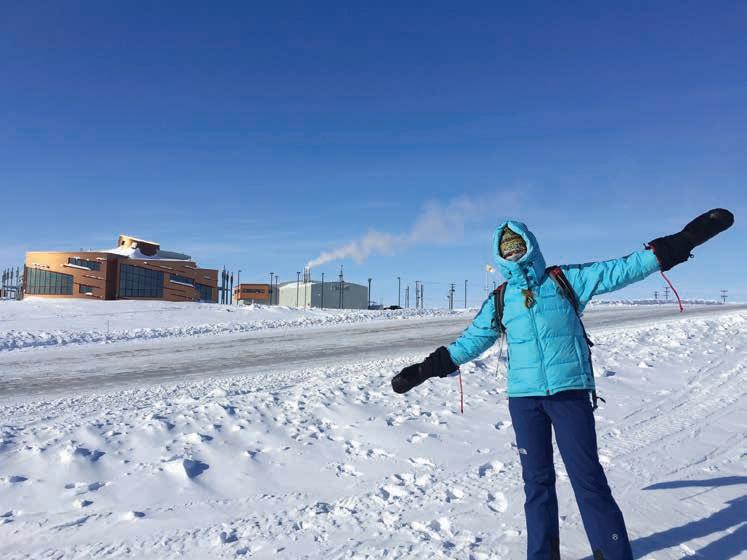
11 minute read
Science & Indigenous Knowledge in Canada’s Arctic
JEANNETTE MENZIES ’95 (M.A. Canadian Studies)
Polar Knowledge Canada (POLAR) is a federal agency that was established in 2015 to advance knowledge of the Canadian Arctic and strengthen Canadian leadership in polar science and technology. Its unique role is to advance our collective understanding of polar environments by mobilizing current knowledge to address the gaps and concerns of Northern communities. Alumna Jeannette Menzies is director of Knowledge Management and Engagement at POLAR and leads a team (based primarily in Cambridge Bay and Ottawa) that strengthens and coordinates partnerships, helps ensure that research results inform policies and programs, and supports the next generation of Northern researchers. She has contributed this report on the work and importance of the agency and on arctic issues. POLAR consists of: • a pan-northern science and technology program, which conducts and supports science and technology research and monitoring across Canada’s North; • the world-class Canadian High
Arctic Research Station (CHARS) campus in Cambridge Bay,
Nunavut, scheduled to officially open in 2018; and • a knowledge management, engagement, and coordination function to support polar research.
Our headquarters is located in Cambridge Bay, Nunavut at the CHARS campus, where approximately 20 of our personnel are based. First Impressions of the North
During my first visit to Cambridge Bay in February 2015, I was immediately struck by the discomfort of -53° Celsius and the intensity of the wind when there are no trees to shield you. I was also intrigued by some uniquely Northern practices. These include a daily lunch bell that signals to EVERYONE in the community of 1,700 people that it is time to go home for lunch; a nightly siren that goes off at 10 p.m. to remind young people to go home; and a deeply instilled “sock culture,” that sees socks worn without shoes in all places of work, always.
The cost of groceries is also striking: $24.99 for four litres of Sunny D juice and $7.49 for a head of notso-crisp lettuce. With food coming in by air or sealift, prices are high and options can be sparse. That said, the North offers culinary delights not
found in the rest of Canada—local delicacies such as Arctic char candy, Arctic char chowder, and the most delightful bannock I have ever tasted.
Cambridge Bay, Nunavut, is a fly-in community of approximately 1,700 people and the administrative centre of the Kitikmeot region. The specific site of the facility was selected for several reasons, including the potential for community integration in activities. It is near a range of largely undisturbed tundra, wetland and freshwater ecosystems, which offer significant potential for scientific monitoring and research demonstration projects.
Construction began in 2014 as very much a shared process. Parties involved in the project have worked hard to ensure that Indigenous Knowledge (IK) is central to all activities. This includes everything from ensuring that programs and partnerships support science that addresses local concerns, to hiring qualified Indigenous staff and incorporating Indigenous Knowledge into the art and design of the station.
The CHARS campus consists of a Main Research Building, a Field and Maintenance Building, and triplex accommodation units that can house up to 48 visiting researchers. The research campus will provide a broad range of services, including a technology development centre, mechanical and electrical workshops, a Knowledge Sharing Centre, and advanced laboratories. The CHARS campus will have office and laboratory space to host visitors. POLAR staff can provide general logistical support as well as equipment for scientists going into the field and working in the research labs.
POLAR operates the CHARS campus year-round, giving researchers a permanent place to conduct their work and foster ongoing connections to Indigenous partners, communities, and other Arctic collaborators.
The main building includes large spaces accessible to the public, such as the Knowledge Sharing Centre. Sitting in the heart of the station and bathed in natural light, this area is intended to bridge different forms of knowledge; it encourages meetings between Inuit and scientists, as well as community members, young and old, to discuss ideas of local, regional and global significance.
Outside the building stands an iconic structure, reminiscent of a set of organ pipes, erected in the shape of a maple leaf. From above, LED lights shine through—a reminder that one is in Canada’s Arctic territory.
Benefiting from Indigenous Knowledge
The research facility is uniquely situated within a community rich in information on how Arctic ecosystems are changing, and perspectives on how these changes impact both wildlife and human communities. Listening, discovering local research priorities and getting feedback are essential. POLAR is constantly working to refine and expand its communications in this regard.
The results of POLAR research affect Northerners directly. It is also informed by them. It fosters an environment where more Northerners are involved in research at all levels, asking the questions, developing and performing the research projects, collaborating with scientists from around the world—and finding the answers that they need. We know this: when more Indigenous people are engaged in research, collective knowledge of the Arctic benefits.
CHARS Campus, home to Polar Knowledge Canada
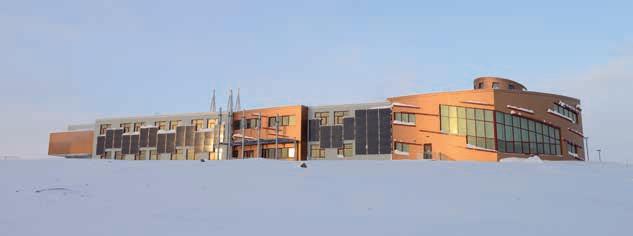
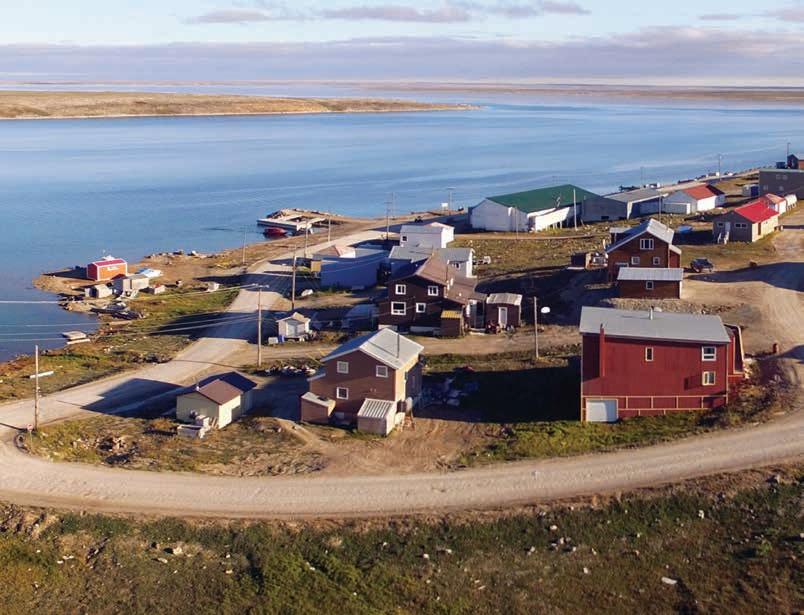
POLAR requires that funded research projects share their results with the communities in which they work, and encourages: • respectful incorporation of both science and Indigenous
Knowledge in project design and implementation; • leadership and involvement of
Northerners, including communities and Indigenous peoples; and • integration of training and capacitybuilding at the local or community level. A benefit of these partnerships and exchanges is the opportunity for Canada to educate international researchers on the importance of respectfully integrating Indigenous Knowledge into science.
Being a permanent part of a Northern community provides opportunities to create new conversations including perspectives of Inuit Elders, youth, and community members, and to exchange ideas with other visitors to the campus. For example, remote sensing is combined with Inuit knowledge to generate realtime information on sea-ice conditions. This enhanced data improves safety in the Arctic, particularly as it relates to marine traffic, which is increasing.
Evidence-based science and technology policy is vitally important to tackling the challenges that Arctic communities face in Canada. Science and technology, in concert with Indigenous and local knowledge, can help address the effects of climate change and other challenges. The knowledge gained through scientific and technological research and training will support greater sustainable use of the Arctic’s land and natural resources. This is a win for everyone involved.
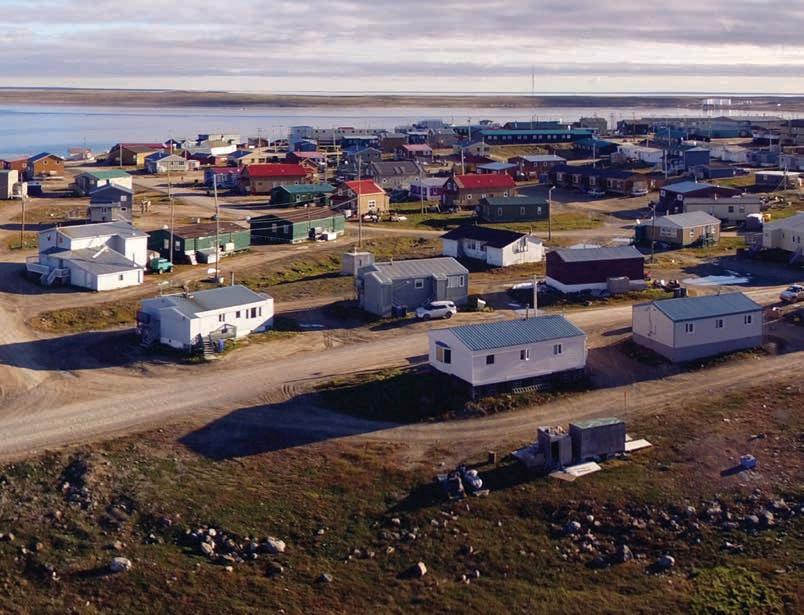
Shelagh Grant Endowment for Northern and Arctic Research
The School for the Study of Canada at Trent University is pleased to announce a new graduate travel and translation fund for an exceptional incoming doctoral student who wishes to undertake research in Northern or Arctic contexts (i.e., any regions in Canada north of 50 degrees latitude). In addition to Trent’s generous regular funding package, the School will provide a guaranteed research travel and translation allowance of up to $20,000 to be used over the course of our four-year Ph.D. program (offered jointly with Carleton University), made possible by the Shelagh Grant Endowment. Preference will be given to a candidate whose research shall focus on one of the following thematic areas in Canadian Northern or Arctic contexts: history; archaeology, anthropology and cultural heritage; human ecology/climate change; borders and security; or aging, health and well-being. For further information, please contact Professor Joan Sangster ’70, director of the Frost Centre, at jsangster@trentu.ca.

NEW CANADA RESEARCH CHAIR TO STUDY ARCTIC SOVEREIGNTY, SECURITY & RESILIENCY
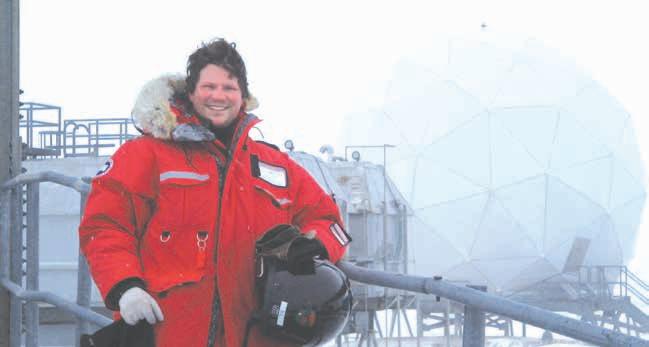
One of Canada’s foremost experts on Arctic history and contemporary Northern policy, Dr. Whitney Lackenbauer, will receive $1.4 million over seven years to help improve academic, policy and public dialogue related to Canada’s North, as Trent University’s newest Tier 1 Canada research chair (CRC). Professor Lackenbauer joined Trent’s School for the Study of Canada on July 1 as a CRC in the Study of the Canadian North—bringing the University’s total number of CRCs to seven.
“We’re excited to be welcoming Prof. Lackenbauer to Trent as a new faculty member, and congratulate him on his new role as a CRC,” said Dr. Neil Emery, vicepresident, Research & Innovation. “His research area will complement Trent’s leadership strengths in both the School for the Study of Canada and the Chanie Wenjack School for Indigenous Studies while also contributing to the future of our nation.”
As CRC, Prof. Lackenbauer will examine how our understandings of history and contemporary affairs influence Northern strategies and policies, and how Canada can promote sovereignty, security and the resilience of Northern communities. This is timely, he says, as climate change is altering the northern landscape, opening up the region to increasing international activity, and generating concerns about sovereignty, security, and safety at the regional, national, and community levels.
“My research throughout the Canadian North has profoundly shaped my understanding of our country and my role as a scholar,” says Prof. Lackenbauer, previously an adjunct professor in Trent’s Frost Centre for Canadian Studies and Indigenous Studies. “What excites me most about the CRC role is being able to offer similar opportunities to Trent students.”
Prof. Lackenbauer specializes in Arctic governance issues, modern Canadian military and diplomatic history, and Indigenous-state relations. He has made a major impact in the fields of Arctic studies, the history of Canada’s North, Indigenous-military relations and Northern public policy. In its millennium issue, Maclean’s Magazine cited him as a “Canadian to watch” in the 21st century.
Prof. Lackenbauer is also an award-winning author. He has published a wide range of books, edited books, articles, book chapters, and policy papers on themes related to Canada’s Arctic and the country’s place in the broader circumpolar world. His books include The Canadian Rangers: A Living History, Canada and the Changing Arctic, and Arctic Front: Defending Canada in the Far North.
In recognition of his longstanding work with the Canadian Rangers, Prof. Lackenbauer has served as the honorary lieutenant colonel for 1st Canadian Ranger Patrol Group, based in Yellowknife and spanning Canada’s three Northern territories, since 2014. He also sits on various national boards and working groups
Thinkstock
dedicated to Canadian Arctic affairs including the Arctic Security Working Group and Canadian Arctic Resources Committee.
The number of CRCs at Trent is impressive for a university of its size. Trent’s seven chair holders advance teaching and learning through their leading-edge explorations in diverse disciplines, and include the following: • Dr. May Chazan, Feminist and Gender Studies • Dr. Whitney Lackenbauer, Canadian North (Tier 1) • Dr. Dennis Murray, Integrative Wildlife Conservation (Tier 1) • Dr. Ian Power, Environmental Geosciences • Dr. Mark Skinner, Rural Aging, Health and Social Care • Dr. Aaron Slepkov, Physics of Biomaterials • Dr. Paul Szpak, Environmental Archaeology
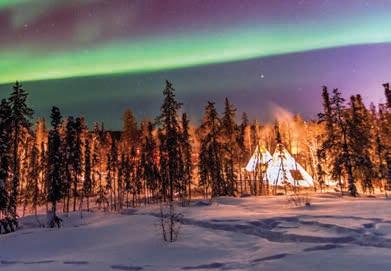
The Canada Research Chairs Program invests approximately $265 million per year toward research across science and the humanities to attract and retain some of the world’s most accomplished and promising minds. The CRC program has positioned Canada as an international leader and destination of choice in research and development. Global interest in the circumpolar region is on the rise and now, more than ever, it’s important to deepen our understanding of Northern perspectives and the impact the circumpolar region has on the rest of the world. To address this need, Trent University has announced the creation of Canada’s first fully-online Circumpolar Studies Diploma.
Launching in fall 2018, and offered exclusively online, the Circumpolar Studies Diploma will bring together scholars from across Canada and around the world to study the most important topics surrounding the circumpolar region’s people and landscapes, its geographical and historical contexts, and issues of security in a changing political and environmental climate.
Speaking on the impact of the program, Dr. Heather Nicol, professor in the Trent School of the Environment, said:
“This comprehensive curriculum reflects the most current thinking about topics of importance to everyone—from undergraduate students looking for an understanding of our changing world to those who live and work in the North in an era of rapid change.”
Developed by University of the Arctic specialists, together with experts from the Trent School of Environment, the Chanie Wenjack School for Indigenous Studies, the School for the Study of Canada, and more, this unique and flexible program provides students with the opportunity to learn from leading faculty members in the study of the Arctic and Canada’s North from anywhere in the world.
The online diploma format will allow students to complete the program as a one-year diploma, or as a postgraduate diploma.
– Jeannette Menzies ’95
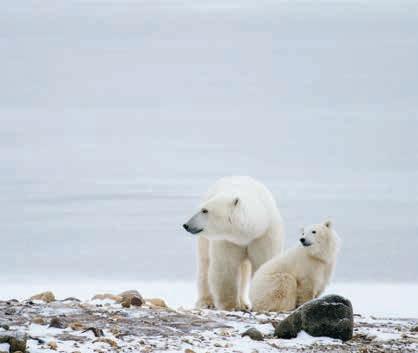
WHERE THE ARCTIC MEETS THE INTERNET
Trent University Announces Canada’s First Online Circumpolar Studies Diploma
Applications for the Circumpolar Studies diploma program are now being accepted. Learn more at trentu.ca/futurestudents/circumpolar
ALUMNI BENEFITS & SERVICES

alumni@trentu.ca Trent University Alumni Association page @TrentAlumni The Official Trent University Alumni Association
@Trent_Alumni
trentu.ca/alumni
HELLO SAVINGS!
Your education does not end when you leave Trent University. As an alumni, you can: Save money on insurance, athletics memberships and bookstore purchases Continue lifelong learning with free
Bata Library membership, online journals, academic lectures and podcasts Advance your career through events, networking and professional development sessions Skill development through volunteer opportunities Free subscription to
TRENT Magazine NEW Access over 1,500 perks with the new MemberPerks app
Do you ever wish you were still a student? Health coverage, no classes on Tuesdays, and an endless metabolism...
Well, some things don’t have to change!

Grad Perks offers supplemental Health & Dental Plans that get you the coverage you need and then some!
Visit studentvip.ca/gradperks to ind out how you can access your coverage along with prescription delivery service, virtual doctor and much more! We’ve got you covered.










